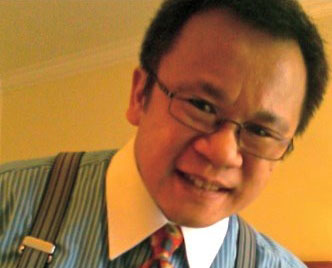SUMMARY
This is AI generated summarization, which may have errors. For context, always refer to the full article.
 With the interviews of the 20 nominees done, the Judicial and Bar Council (JBC) now prepares to shortlist the nominees for the President—a routine which the JBC is familiar with and which it has done many times before since its creation in 1987.
With the interviews of the 20 nominees done, the Judicial and Bar Council (JBC) now prepares to shortlist the nominees for the President—a routine which the JBC is familiar with and which it has done many times before since its creation in 1987.
One thing though is different with this particular selection process. It is the first process to be undertaken by the JBC post-Corona, and in the same manner that the impeachment process against the former chief justice raised popular expectations, so too did this particular search.
This particular search process made a great effort to be transparent—allowing the live-streaming of the interviews, for example—and to be more open to questions from the public through social media. These efforts were appreciated and quite refreshing. What aroused greater expectation, however, was the manner by which the JBC would conduct this search for a new chief justice.
Because of the Corona impeachment process, many expected that the nominees would be subjected to a different process—not the usual predictable, formulaic, even boring questioning but a more expansive scope of questioning. As I monitored the interviews of the 20 nominees, I was actually more interested in the questions of the JBC members rather than the answers of the nominees.
After all, the nominees’ answers would simply be in response to the questions of the JBC members. I had earlier written that “(t)he tendency of JBC members would be to ask questions limited to the particular sector they represent and these questions would tend to be formulaic and predictable.” Thus, I was not surprised that the questions of the JBC members directed to the 20 nominees tended to be predictable and indeed formulaic (with a few notable exceptions).
What did surprise me was that: (1) many of the questions were downright shallow, bordering on the inane and gossip (for instance, asking the Securities and Exchange Commission Chairperson whether her unmarried civil status was a personal choice), and (2) there was a remarkable reticence on the part of the JBC members to engage, to follow up on areas which would presented opportunities to show the particular nominee’s capacity for independent thought as well as her or his character.
There were many opportunities when pointed questions were asked (many of these came from the public through social media and, indeed, many of the more pertinent, relevant and sensible questions came from the public who were tuned in), but the JBC members failed or refused to pursue the point. There were many opportunities for more pointed questions to be asked but were not.
Great disservice
This reticence to engage and to probe further, for me, was a great disservice simply because many of the 20 nominees are outstanding in their fields. The list includes current law school deans, former law deans, current and former senior partners of private law firms, and outstanding private practitioners, many of whom have master’s degrees (with one, former UP Law Dean Raul Pangalangan, holding a doctorate degree in law from Harvard Law School).
While advanced degrees and a good law practice do not necessarily translate into competence and effectiveness as chief justice, they do provide a track record, a paper trail, an account of thought and action, principle and practice for each nominee. After all, the chief justice is not simply expected to be an administrator, he/she is expected to be the primus inter pares—a deep legal thinker with a clear philosophy and a principled adherence to that philosophy expressed in previous writings or past actions.
While some JBC members did ask some of the nominees what their judicial philosophy was, there was hardly any effort to probe deeper, to inquire more and to put that philosophy to the test. It appeared more to be a pro forma query rather than a basis to evaluate a particular nominee’s ability to lead the Court. The moment called for heft, not only from the nominees but more importantly from the JBC members themselves; instead, we got froth.
In the meantime, after that underwhelming selection process, the JBC may still provide clear and meaningful guidance to the President by providing a clear record of its proceedings as well as the reasons and the considerations that weighed for or against a particular nominee.
The President cannot be expected to simply pick a name from the 3 given to him by the JBC without knowing what the JBC saw or did not see.
The only way the JBC may live up to its constitutional duty is to document the reasons for its choices as well as its non-choices and, in the spirit of transparency, make the same accessible to the public. – Rappler.com
Add a comment
How does this make you feel?
There are no comments yet. Add your comment to start the conversation.